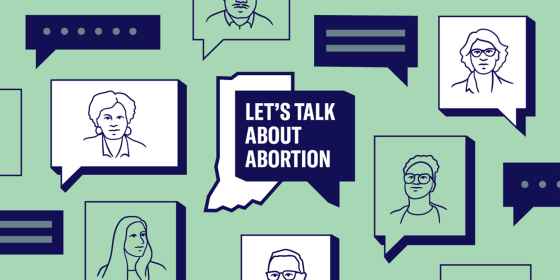What are my rights at a protest?
- Your rights are strongest in what are known as “traditional public forums,” such as streets, sidewalks, and parks. You also likely have the right to speak out on other public property, like plazas in front of government buildings, as long as you are not blocking access to the government building or interfering with other purposes the property was designed for. Private property owners can set rules for speech on their property. The government may not restrict your speech if it is taking place on your own property or with the consent of the property owner.
- Counterprotesters also have free speech rights. Police must treat protesters and counterprotesters equally. Police are permitted to keep antagonistic groups separated but should allow them to be within sight and sound of one another.
- You don’t need a permit to march in the streets or on sidewalks, as long as marchers don’t obstruct car or pedestrian traffic. If you don’t have a permit, police officers can ask you to move to the side of a street or sidewalk to let others pass or for safety reasons.
What happens if the police issue an order to disperse the protest?
- Shutting down a protest through a dispersal order must be law enforcement’s last resort. Police may not break up a lawful gathering unless there is a clear and present danger of riot, disorder, interference with traffic, or other immediate threat to public safety.
- If officers issue a dispersal order, they must provide a reasonable opportunity to comply, including sufficient time and a clear, unobstructed exit path.
- Individuals should receive clear and detailed notice of a dispersal order, including how much time they have to disperse, the consequences of failing to disperse, and what clear exit route they can follow, before they may be arrested or charged with any crime.
I believe my rights were violated while protesting, but I was not arrested, or the charges were dropped. Should I file a legal request with the ACLU of Indiana?
- After reading the above know your rights information, if you believe the police interfered with your First Amendment right to protest, you may file a request for legal assistance with the ACLU of Indiana.
- If you believe your constitutional rights have been violated, you can file a complaint with the ACLU online, email us at intake@aclu-in.org or
- mail intake requests to:
ACLU of Indiana
1031 East Washington Street
Indianapolis, IN 46202
I believe I was unlawfully arrested and charged for protesting. Should I file a legal request with the ACLU of Indiana?
- Once you are arrested, you will be required to seek relief from a criminal court and our office does not handle criminal cases. You should contact an attorney practicing criminal law. There are many such lawyers in the community. We have been informed that the law firm of Saeed and Little at 317-721-9214 may be providing free representation to persons arrested. You may also contact Lucy Frick or the Marion County Bar Association.
How can I be my own legal observer?
- Take pictures and record video at the protest (see more below).
- If you believe your rights have been violated, when you can, write down everything you remember, including the officers’ badge and patrol car numbers and the agency they work for.
- Get contact information for witnesses.
- Take photographs of any injuries.
- Once you have all of this information, you can file a written complaint with the agency’s internal affairs division or civilian complaint board.
What if I see another protestor’s rights being violated?
You should encourage them to take the above steps and contact the ACLU of Indiana.
Can I take pictures or shoot video at a protest?
- When you are lawfully present in any public space, you have the right to photograph anything in plain view, including federal buildings and the police. (On private property, the owner may set rules about photography or video.)
- Police officers may not confiscate or demand to view your photographs or video without a warrant, nor may they delete data under any circumstances. However, they may order citizens to cease activities that are truly interfering with legitimate law enforcement operations.
What do I do if I am stopped or detained for taking photographs?
- Always remain calm and never physically resist a police officer.
- Police cannot detain you without reasonable suspicion that you have or are about to commit a crime or are in the process of doing so.
- If you are stopped, ask the officer if you are free to leave. If the answer is yes, calmly walk away.
- If you are detained, ask the officer what crime you are suspected of committing, and remind the officer that taking photographs is your right under the First Amendment and does not constitute reasonable suspicion of criminal activity.

